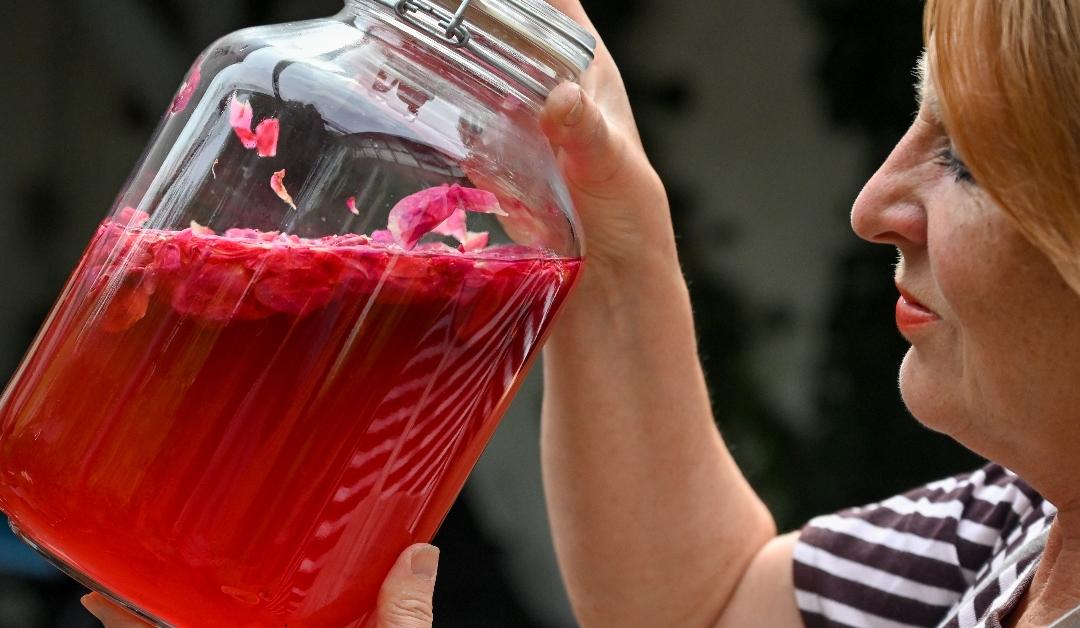On the Shelf Life of Apple Cider Vinegar: Should You Pay Attention to Its Best-by Date?
Published Jan. 16 2024, 11:04 a.m. ET

People living sustainable lifestyles know vinegar is a multi-use grocery item. You can use it to polish your counters and even clear your landscaping of unsightly weeds. If you start exploring the various types of vinegar at the grocery store, you might wonder what many people ask — does apple cider vinegar go bad?
Don’t let this common question stop you from experiencing the health benefits of fruit-based vinegar. Learn everything you need to know to add it to your plant-based diet without any reason for concern.

Does apple cider vinegar go bad?
While apple cider vinegar eventually goes bad, it may take a while to reach that point. It’s an acid that averages a pH level of 3.7–5.33, as noted by researchers with Molecules. The low acid levels make it less likely to lose its quality.
Apple cider vinegar is also antimicrobial, according to Scientific Reports. If bacteria were to enter your vinegar bottle during manufacturing or usage, the acids would kill the bacteria before they could rot the vinegar.
Some people think apple cider vinegar is going bad because it’s cloudy. However, it could be more or less cloudy depending on how much apple sediment survived the manufacturing process. Cloudiness also comes from the gelatinous acetic acid bacteria in each bottle.
Also known as “the mother,” the acetic acid lump kickstarts fermentation and maintains the vinegar, as noted in Frontiers in Food Microbiology. It’s a substantial reason why apple cider vinegar lasts so long. Your vinegar would likely go bad much more quickly if you removed the mother, although there’s no research pinpointing exactly how fast you’d need to throw the vinegar out.
There are plenty of potential health benefits of apple cider vinegar.
People often discover apple cider vinegar when they’re trying to lose weight. A leading study found that participants drinking 30 milliliters per day or slightly over six teaspoons significantly reduced their body weight, as published in the Journal of Functional Foods. However, it’s worth noting that the participants also had a 250-calorie deficit, which would have also contributed to the weight loss.
A nutritionist might also recommend adding apple cider vinegar to your diet if you recently got diagnosed with type-2 diabetes. Research shows it lowers HbA1C concentrations and fasting plasma glucose in patients with the condition, per BMC Complementary Medicine and Therapies. The participants consumed 20 milliliters per day or four teaspoons to achieve these results.
The study from BMC Complementary Medicine and Therapies also found that its participants had lower cholesterol levels. It could mean drinking 20 milliliters daily could improve your heart health alongside your doctor’s recommendations, such as a healthier diet and regular exercise.
Are there negative side effects to drinking apple cider vinegar?
The low pH level of apple cider vinegar means it’s highly acidic. A study in the Journal of Primary Health Care notes that it can damage enamel when consumed in an undiluted form. The same study cautions against excessive, long-term consumption. It cites the experience of a woman who drank 250 milliliters daily for six years and received diagnoses of osteoporosis, hypokalaemia, and hyperreninemia.
Anything highly acidic can also burn the esophagus due to continual contact. It’s best to stick with the serving size on a product’s label or a recipe’s instructions to avoid these adverse effects.
How do you know when vinegar goes bad?
There are three ways to know if your vinegar has gone bad — the expiration date, smell, or taste. If the expiration or sell-by date was months or years ago, it’s likely time to replace your bottle.
You can also give it a small taste test. It will either taste nothing like apples or lack any of the natural bite vinegar has due to its low pH levels.
Smelling your vinegar is another option. If you can’t smell an apple-like aroma or you get a whiff of something rancid, you’ll know your vinegar needs to go down the drain.
Apple cider vinegar does go bad, but it can take months or years to reach that point. If it has its mother and stays sealed against oxygen, your vinegar is likely safe to consume. Test its smell, taste, and best-by date if you’re concerned about spoilage.